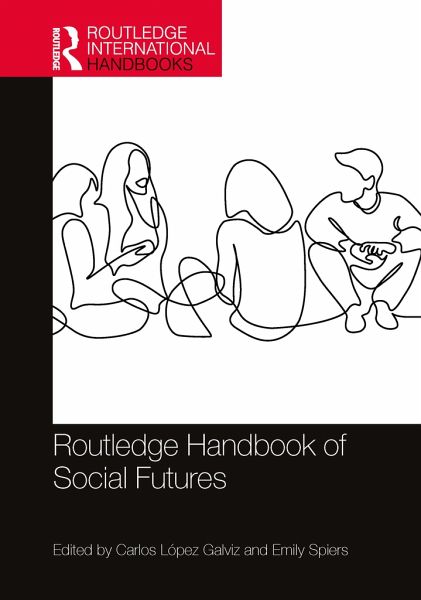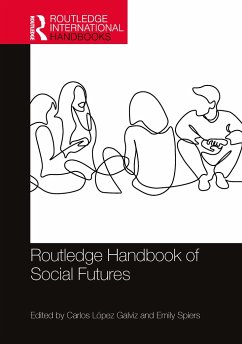
Routledge Handbook of Social Futures
Versandkostenfrei!
Versandfertig in 6-10 Tagen
47,99 €
inkl. MwSt.

PAYBACK Punkte
24 °P sammeln!
Featuring chapters from an international range of leading and emerging scholars, this Handbook provides a collection of cutting-edge, interdisciplinary research that sheds new light on contemporary futures studies. Engaging with key defining questions of the early twenty-first century such as climate change, big data, AI, the future of economics, education, mental health, cities and more, the Handbook provides a review and synthesis of futures scholarship, highlighting the role that societies can and should play in their making. While the various chapters demonstrate how futures emerge and tak...
Featuring chapters from an international range of leading and emerging scholars, this Handbook provides a collection of cutting-edge, interdisciplinary research that sheds new light on contemporary futures studies. Engaging with key defining questions of the early twenty-first century such as climate change, big data, AI, the future of economics, education, mental health, cities and more, the Handbook provides a review and synthesis of futures scholarship, highlighting the role that societies can and should play in their making. While the various chapters demonstrate how futures emerge and take shape in particular places at particular times, the distinctive insight provided by the volume overall is that futures thinking today must be social and contextual.
By presenting a range of futures work from contexts around the globe, the Handbook contextualizes techniques - forecasting, backcasting, scenario planning, collaboration and co-production- to ask how different dimensions of the social are created and circulated in the process. Through its thirty chapters, the volume explores and interrogates narratives, anticipations, enactments, ecologies, collaborations, prospections and so on to highlight which versions of the social are legitimized and which are encouraged and foreclosed.
This Handbook opens an important conversation about the centrality of the social in futures thinking. By bringing arts, humanities and social sciences scholars and practitioners into conversation with biologists, environmental, climate and computer scientists, this volume seeks to encourage new pathways across, between and within multiple disciplines to interrogate the futures we need and want. The social must be our starting point if we are to steer our planet in a direction that supports good lives for the many, everywhere.
By presenting a range of futures work from contexts around the globe, the Handbook contextualizes techniques - forecasting, backcasting, scenario planning, collaboration and co-production- to ask how different dimensions of the social are created and circulated in the process. Through its thirty chapters, the volume explores and interrogates narratives, anticipations, enactments, ecologies, collaborations, prospections and so on to highlight which versions of the social are legitimized and which are encouraged and foreclosed.
This Handbook opens an important conversation about the centrality of the social in futures thinking. By bringing arts, humanities and social sciences scholars and practitioners into conversation with biologists, environmental, climate and computer scientists, this volume seeks to encourage new pathways across, between and within multiple disciplines to interrogate the futures we need and want. The social must be our starting point if we are to steer our planet in a direction that supports good lives for the many, everywhere.














